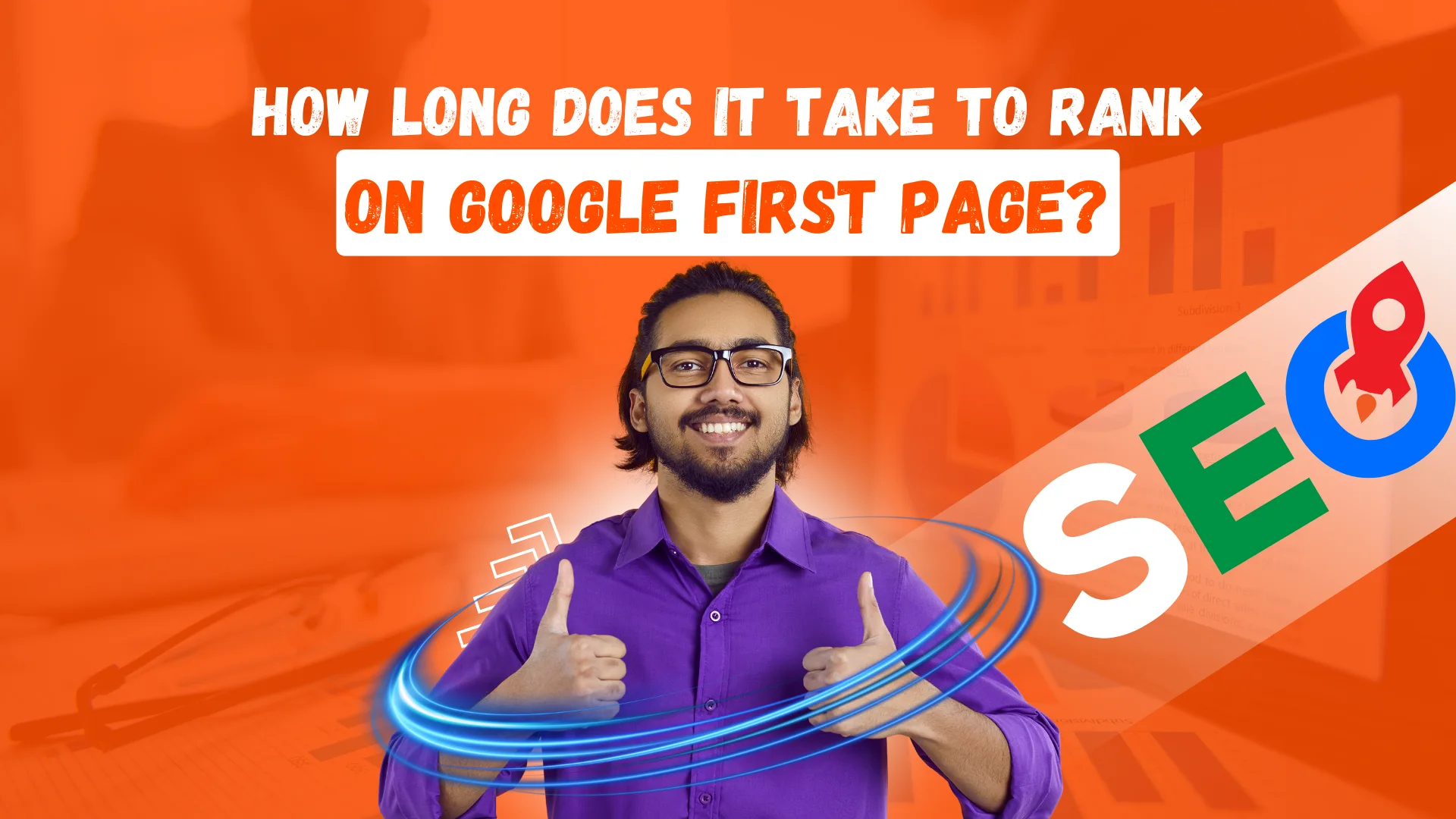
Every website owner dreams of ranking on the first page of Google. Achieving this goal means more visibility, higher organic traffic, and a better chance of turning visitors into customers. But one question that continues to puzzle many is: How long does it take to rank on Google’s first page?
In this blog post, we will dive deep into the factors that affect your ranking time, the typical timeline for ranking, and actionable tips on how you can speed up the process.
Understanding Google’s Ranking System
Before we answer the question, it’s crucial to understand how Google ranks websites. Google uses a complex algorithm that evaluates hundreds of factors to determine where a webpage should rank in search results. Some of these factors include:
- Content quality: Google prioritizes websites with informative, well-written, and relevant content.
- Backlinks: The number of quality links pointing to your website indicates to Google that your site is trustworthy.
- On-page SEO: Proper use of keywords, meta tags, and optimized images can improve your chances of ranking higher.
- Mobile-friendliness: Google prefers mobile-optimized sites due to the increasing number of users browsing on mobile devices.
- Page speed: A fast-loading website provides a better user experience and can boost your ranking.
With these factors in mind, let’s explore how long it typically takes to see results.
Average Time to Rank on Google First Page
The time it takes to rank on Google’s first page can vary widely. In general, it can take anywhere from 3 to 6 months or even longer, depending on several factors such as competition, industry, and SEO strategy. A study by Ahrefs found that only 22% of pages that currently rank in the top 10 Google results were created within a year. Here’s a breakdown of typical timelines:
- Low-competition keywords: You can rank on the first page within 3-6 months if you’re targeting less competitive keywords with lower search volume.
- Moderate-competition keywords: It might take 6-12 months to rank for moderately competitive keywords.
- High-competition keywords: Ranking for highly competitive keywords can take over a year, especially if you’re competing against established websites with strong backlink profiles.
Factors Affecting the Time to Rank
Several factors influence how long it will take for your website to reach Google’s first page. Understanding these factors can help you create a more effective SEO strategy.
1. Keyword Competition
The level of competition for the keywords you’re targeting plays a significant role in how long it will take to rank. If you’re targeting highly competitive keywords like “best SEO agency in Bangladesh,” it will take longer to outrank established sites already ranking for those terms. In contrast, targeting long-tail keywords or niche-specific keywords with lower search volume can yield faster results.
2. Domain Authority
Domain authority (DA) is a score that predicts how well a website will rank on search engine result pages. New websites typically have a low DA, which means they may take longer to rank compared to established websites with a higher DA. Improving your DA through consistent backlink building and content creation will help speed up the ranking process.
3. Content Quality
Content is still king when it comes to SEO. If your content is valuable, informative, and better than what is currently ranking on the first page, you’ll have a better chance of ranking higher. High-quality content that answers users’ search queries comprehensively tends to rank faster than low-quality or irrelevant content.
4. Backlink Profile
Backlinks are one of the most important ranking factors. The more high-quality backlinks you have from authoritative websites, the faster you’re likely to rank. However, building a solid backlink profile takes time and effort. Focus on creating shareable content and engaging in outreach campaigns to earn links naturally.
5. Technical SEO
Technical SEO involves optimizing the backend structure of your website. Google considers factors like site speed, mobile responsiveness, and structured data when determining rankings. Ensuring that your website is technically sound can improve your chances of ranking faster.
6. Content Updates and Consistency
Google rewards websites that consistently publish fresh content. Regular updates and new content signal to Google that your site is active and relevant. Consistency in posting blogs, articles, and case studies can shorten the time it takes to see results.
How to Speed Up the Ranking Process
While ranking on Google’s first page isn’t an overnight process, there are strategies you can implement to speed up the timeline:
1. Target Low-Competition Keywords
To achieve quicker results, focus on targeting low-competition, long-tail keywords. These keywords often have less search volume, but ranking for them can bring more relevant traffic to your site. Use tools like Google Keyword Planner or SEMrush to find low-competition keywords in your niche.
2. Create High-Quality Content
Craft content that is valuable, informative, and optimized for both users and search engines. Use the targeted keyword naturally throughout your content, including in the title, headings, and meta description. Make sure your content addresses user intent and provides comprehensive answers to their questions.
3. Build a Strong Backlink Profile
Link building can significantly accelerate your ranking efforts. Focus on earning backlinks from high-authority sites in your industry. You can do this by guest posting, creating shareable infographics, and collaborating with influencers. Avoid spammy backlinks, as they can harm your rankings.
4. Optimize for Mobile and Speed
Ensure that your website is mobile-friendly and fast. Google prioritizes websites that offer a smooth user experience across all devices. Use Google’s PageSpeed Insights to identify areas where you can improve your site’s load time.
5. Use Internal Linking
Internal linking helps Google understand the structure of your website and the relationships between different pages. By linking to relevant content within your site, you can improve your SEO and keep visitors on your site longer, both of which contribute to faster rankings.
6. Leverage Local SEO
If you’re targeting a specific geographic area, such as “best web development company in Bangladesh” or “best SEO agency in Dhaka,” make sure to optimize your website for local SEO. Include your location in your keywords, meta tags, and content. Create a Google My Business profile and ensure your business information is consistent across all online directories.
Common SEO Pitfalls That Delay Ranking
While the right SEO strategies can accelerate your ranking, certain mistakes can hinder your progress. Avoid these common pitfalls to stay on track:
- Keyword Stuffing: Overloading your content with keywords can lead to penalties from Google. Instead, focus on using keywords naturally.
- Duplicate Content: Ensure that your content is unique and original. Duplicate content can confuse search engines and hurt your rankings.
- Ignoring Mobile Optimization: With mobile searches accounting for the majority of web traffic, failing to optimize for mobile can negatively impact your rankings.
- Poor Website Structure: A website with a confusing layout and broken links can deter users and cause Google to rank you lower.
Start Ranking Higher Today
Achieving a first-page ranking on Google takes time, effort, and strategic planning. While it can take anywhere from 3 to 12 months to see significant results, focusing on creating high-quality content, building a strong backlink profile, and optimizing your website’s technical aspects can speed up the process.
At Foxweb IT, we specialize in SEO services that are designed to get your website ranking faster. With over 12 years of experience in the digital marketing sector, we understand the ins and outs of Google’s algorithm and how to help your website climb the ranks.
Contact us today to learn more about our SEO services and how we can help you rank on the first page of Google faster than your competitors.


